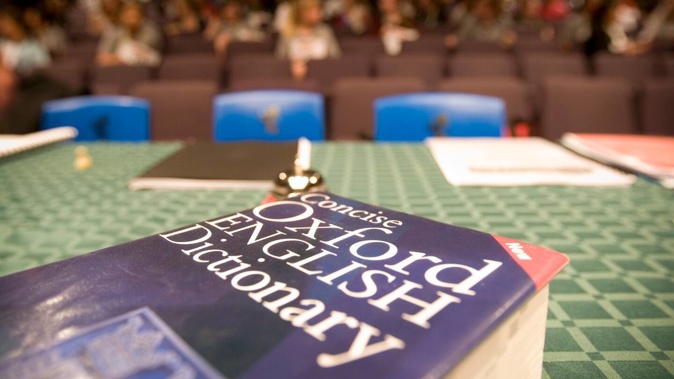
The dictionary’s bestowed word for 2024 follows “rizz” last year, “goblin mode” in 2022, and “vax” in 2021.
Oxford’s 2024 Word of the Year is more than a century old, but that doesn’t mean it’s not incredibly relevant in 2024.
The winner, announced on Monday by the University of Oxford, was “brain rot” - a term that describes that overconsumption of material or content to the point that it deteriorates one’s mental state. (As in, how sludgy you feel after bingeing an entire Netflix show after - or while - doomscrolling.)
According to Oxford, the word was first used in 1854 in Henry David Thoreau’s book Walden. But in 2024, the term is finding a new meaning as people are surrounded by scrolling their phones, notifications and memes. The word, according to Oxford, has seen a 230% increase in usage between 2023 and 2024.
But who decides what is the word of the year? Many dictionary organisations have issued their pronouncements this month, and multiple have honoured words originating on and popularised by social media and our changing language, experts said.
“‘Brain rot’ speaks to one of the perceived dangers of virtual life, and how we are using our free time,” said Casper Grathwohl, president of Oxford Languages, in a statement. “It feels like a rightful next chapter in the cultural conversation about humanity and technology.”
On November 1, Collins Dictionary named “brat” as its 2024 award winner, referring to the title of Charli XCX’s album released in June. The word came to describe a season of sorts (“brat summer,” as it was called). (Collins defined the word as “characterised by a confident, independent, and hedonistic attitude.”) “Brat” became such a cultural phenomenon online that Vice-President Kamala Harris’ campaign embraced it after Charli XCX posted on X that Harris was, in fact, “brat.”

Charli XCX (left) popularised the word "Brat" with the release of her album of the same name. Photo / Getty Images
But Collins wasn’t all brat. Runners-up choices from Collins’s list included “looksmaxxing” (attempting to maximise your looks), “rawdogging” (participating in an activity at a bare-bones level) and “delulu” (a shortened version of delusional).
The folks at Dictionary.com also chose a word that crossed over from the Internet to real life for its word of the year in “demure” - a term was popularised on TikTok when creator Jools Lebron used the phrase “very demure, very mindful” as she offered advice to people on how to be considerate and respectful in different situations. According to Dictionary.com, the word’s definition is slightly different online compared with its traditional usage. Generally, the word describes modest, reserved or quiet people. But on the Internet, it has been used to mean sophisticated actions or behaviour.
Some other word-of-the-year choices have had fewer ties to the internet. Cambridge Dictionary picked “manifest,” (obtaining what you desire) while the Economist tapped “kakistocracy” (a government ruled by the worst people) for their picks.
Leaning into Internet slang terms is far from a new. Last year, Oxford picked “rizz” as its word of the year, a term popularised by Gen Z describing charisma that you’ll also find scattered in TikTok video comment sections and quote posts on X.
The widespread use of Internet-centric words reflects a society that’s shifting its language toward what’s being read and shared online, said Tony Thorne, a linguist who teaches about slang at Kings College London.
“The internet is increasingly where language arises and where language change occurs,” he said.
According to Thorne, shifts in language used to happen in playgrounds, offices and the streets. Sometimes, movies and television would impact word choices, or create catchphrases for people to mimic. “But now ... pop culture has become internet culture,” he said.
Dictionaries have embraced internet jargon for their annual awards because they want to broaden their audiences.
“The publishers,” he said, “need to demonstrate that they are keeping up with the latest changes in the language ... and interpreting novel and exotic new terms for their readers.”
It’s still unclear what Merriam-Webster will pick for its word of the year. Last year, they tapped “authentic” with the honour (“rizz” was the runner-up).
Take your Radio, Podcasts and Music with you









